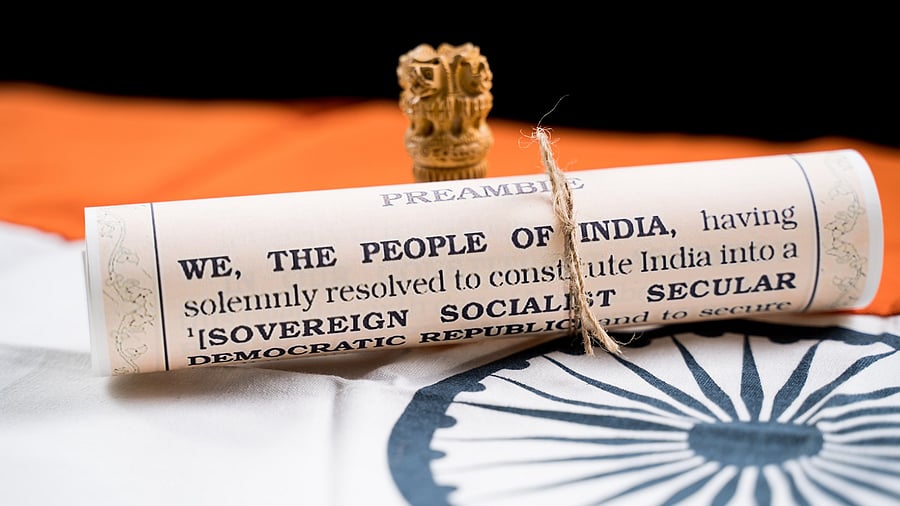
The Preamble of india. Image for representation.
Credit: iStock Photo
New Delhi: There is “no current plan or intention” to “reconsider or remove” the words ‘socialist’ and ‘secular’ from the Preamble of the Constitution, the Modi government informed Rajya Sabha on Thursday, as it referred to a 2024 Supreme Court judgement that defended the inclusion of these words through a Constitutional amendment in 1976.
In response to a ‘Starred Question’ raised by Samajwadi Party’s Ramji Lal Suman, Law Minister Arjun Ram Meghwal said the government has “not formally initiated any legal or Constitutional process” to remove the two words from the Preamble though there may be discussions or debates in “certain public or political circles”.
“No formal decision or proposal” has been announced by the government regarding amendments to these terms, he said.
The government’s clarification came as a controversy was triggered after RSS General Secretary Dattatreya Hosabale said in late June that these words were “not in Dr Ambedkar’s Constitution” and added during the Emergency, while calling for a debate on whether it should remain or not. The Opposition alleged that it was a “long-standing conspiracy to dismantle” Ambedkar's vision and impose “Manusmriti’s archaic framework”.
“The government’s official stand is that there is no current plan or intention to reconsider or remove the words ‘socialism’ and ‘secularism’ from the preamble of the Constitution. Any discussions regarding amendments to the preamble would require thorough deliberation and broad consensus, but as of now, the government has not initiated any formal process to change these provisions,” Meghwal said.
Referring to the November 2024 SC judgement, which dismissed petitions challenging the 42nd Constitutional amendment affirming Parliament’s power to amend the Constitution extended to the Preamble, he said it has clarified that socialism in the Indian context signified a welfare state and does not impede private sector growth and secularism is integral to the Constitution’s basic structure.
To a question on “atmosphere created by office bearers of some social organisations”, he said, “it is possible that certain groups are expressing opinions or advocating for reconsideration of these words. Such activities can create a public discourse or atmosphere around the issue, but this does not necessarily reflect the official stance or actions of the government.”
